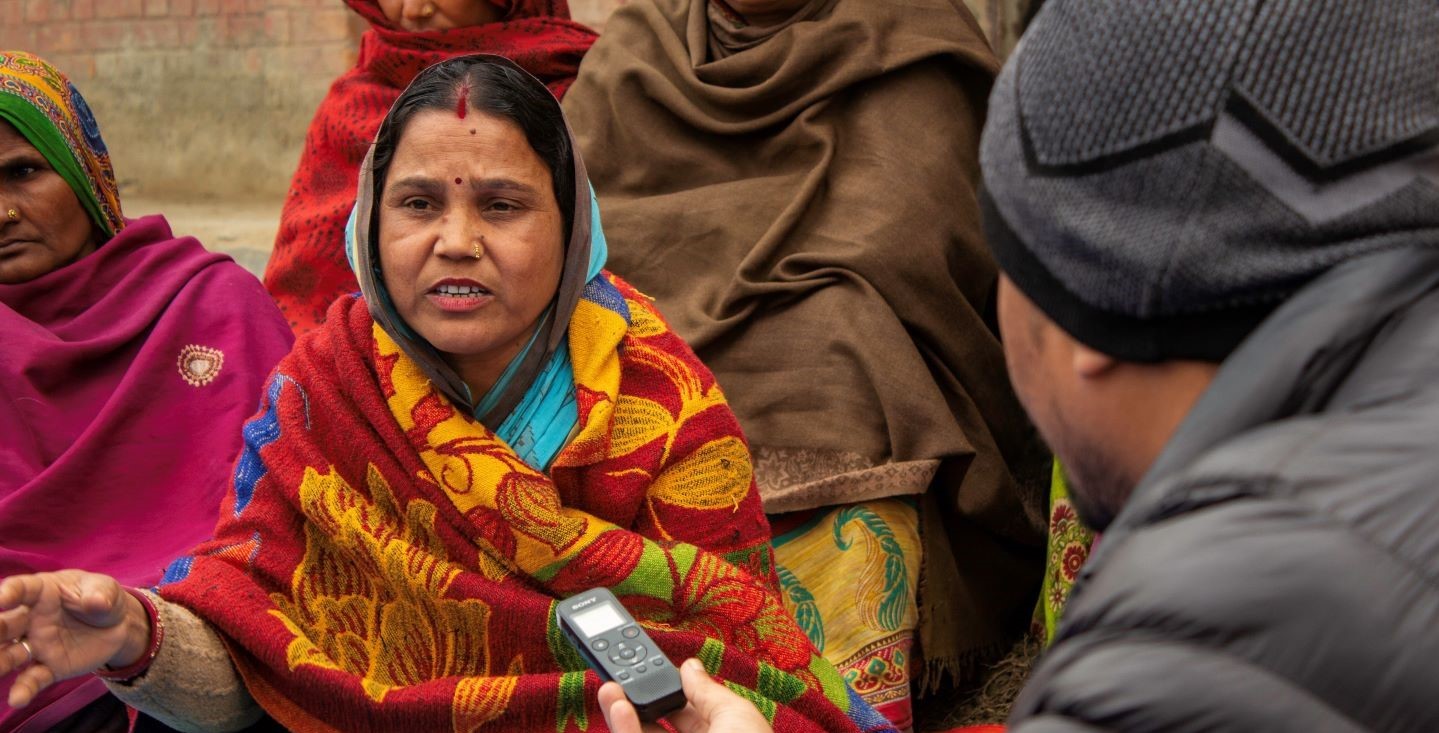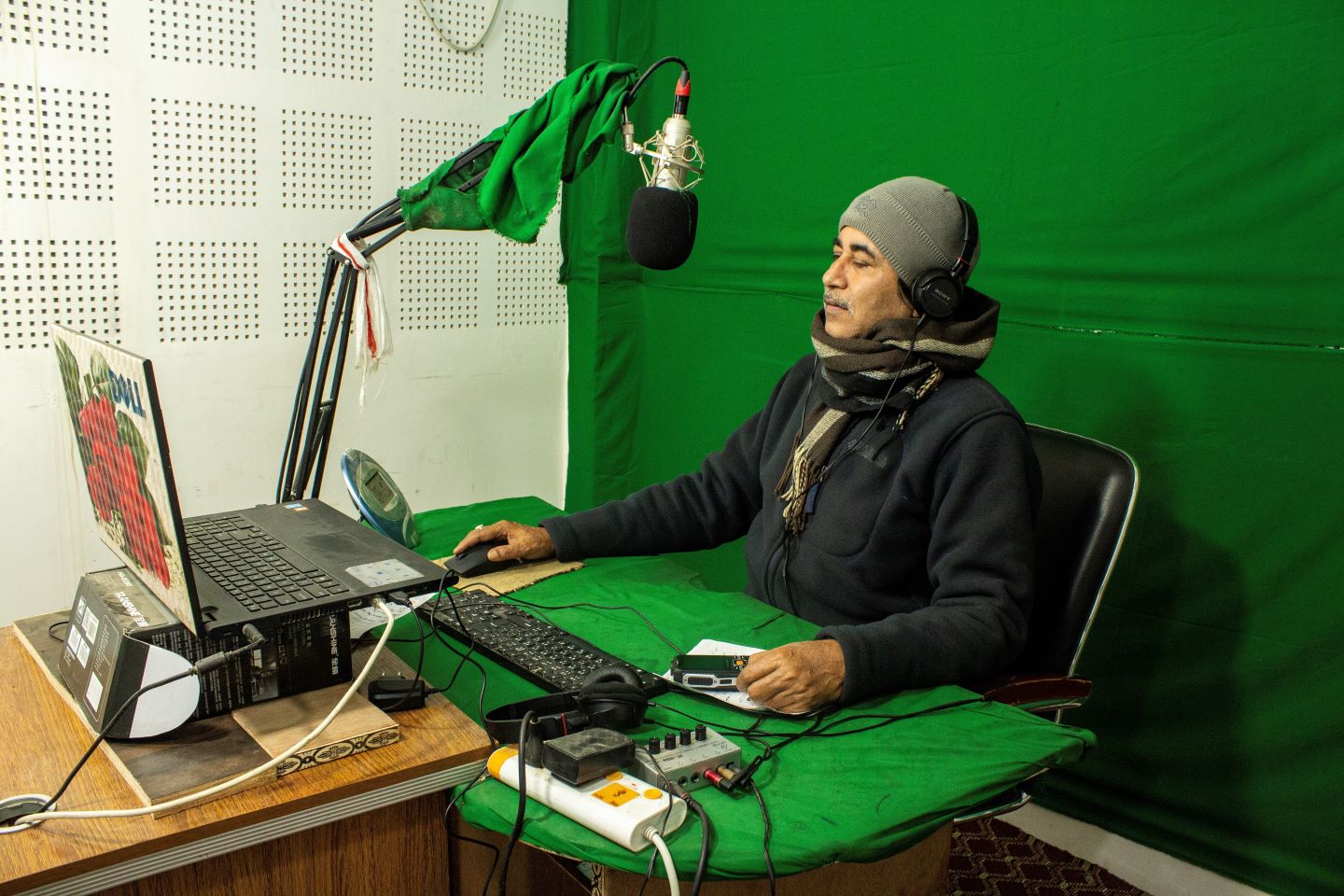Celebrating rural women's voices - Rural women speaking out for change through community radio in Nepal
IFAD Asset Request Portlet
Asset Publisher
Celebrating rural women's voices - Rural women speaking out for change through community radio in Nepal
Estimated reading time: 3 minutes
Community reporter in Sarlahi collecting feedback for the radio series from a rural woman farmer
On the International Day of Rural Women (IDRW), 15 October, we celebrate rural women and girls worldwide and recognize the crucial role they play in contributing to sustainable food systems and rural development. This year's IDRW comes as the world continues to face the challenge of the COVID-19 pandemic which has exacerbated existing gender inequalities faced by rural women. These include challenges in accessing resources, opportunities and services, as a result of entrenched social norms and patriarchal systems.
The Joint Programme Accelerating Progress Towards the Economic Empowerment of Rural Women (JP RWEE) is implemented in Ethiopia, Guatemala, Kyrgyzstan, Liberia, Nepal, Niger and Rwanda by four UN agencies: the Food and Agriculture Organization (FAO), the International Fund for Agricultural Development (IFAD), UN Women, and the World Food Programme (WFP). It adopts a holistic approach to women's economic empowerment, encompassing social and political domains of empowerment.
In Nepal, the programme is being implemented in the southern Rautahat and Sarlahi districts, where discriminatory social norms are deeply entrenched and women face multiple and intersecting forms of discrimination, including confinement to the home, which severely limit their participation in rural life and decision making. To address these complex challenges, the JP RWEE in Nepal implemented the Gender Action Learning System (GALS), a community-led empowerment methodology used to achieve more equitable gender relations. This involves actively engaging men and boys in household and community discussions which gives rise to the inclusion of the voices of women and girls in daily life and decision making. During the COVID-19 pandemic, these gatherings and discussions were severely impacted by strict lockdowns and prohibition of meetings to combat the spread of the virus.
The programme adapted its way of working and developed an innovative community radio programming methodology to overcome the restrictions and support the delivery of GALS. The radio programme consisted of fifteen episodes in which discussions were held on topics such as gender identities and roles, women's empowerment and leadership, basic financial knowledge, diversity and social inclusion for gender equality and equity, access to justice, and harmful social norms, traditions and practices that underpin violence against women and girls. The radio tool enabled wider household participation and engagement in discussions on women's rights, with husbands joining awareness sessions, showing support to women, and voicing the need for increased recognition of women's role and value. This, in turn, enabled rural women to assert their status in the family and to develop their leadership ability, supported by their husbands.

Arati Devi Karna, a woman from the Gujara municipality, Rautahat district, says "The radio programme of JP RWEE is my university". Listening to the radio programme with her family has changed their attitude towards her mobility and engagement in public life. She can now freely travel around to buy seeds and fertilizers or use her radio to engage other people from her community on various life-empowering messages aired by the programme. Karna uses the messages from the radio to advocate against gender-based violence, to call for women's leadership, and to change behaviours that sustain harmful norms and practices. Alongside Karna, an audience of nearly 230,000 people in the Rautahat and Sarlahi districts was reached through the series of programmes.
The use of community radio also provided women with a direct channel of communication to local leaders and helped improve their ability to engage with leaders and officials on issues that are crucial to them. Through a 'Query for My Leaders' series, interactive sessions were held between women and local officials in which women were able to ask questions, raise concerns and request responses from local government. This included discussion on issues such as the provision of agricultural inputs, COVID-19 relief packages and the delivery of local services. This experience has not only helped women develop assertiveness and confidence in interacting with local officials, articulating their concerns and needs, and expecting responses and action from those in authority, but it has also helped improve attitudes and understanding of issues affecting rural women on the part of decision-makers.
Through such approaches the JP RWEE in Nepal is breaking new ground for rural women's empowerment. Men are understanding that women are central to sustainable development processes, harmful social norms are being addressed, and rural women are acquiring and using skills that enable their empowerment within their households and communities.
On the International Day of Rural Women, we welcome this opportunity to celebrate rural women and girls, to recognize their critical role in sustainable development processes, and to champion their empowerment.
Read more about the Joint Programme Accelerating Progress Towards the Economic Empowerment of Rural Women
Publication date: 14 October 2021